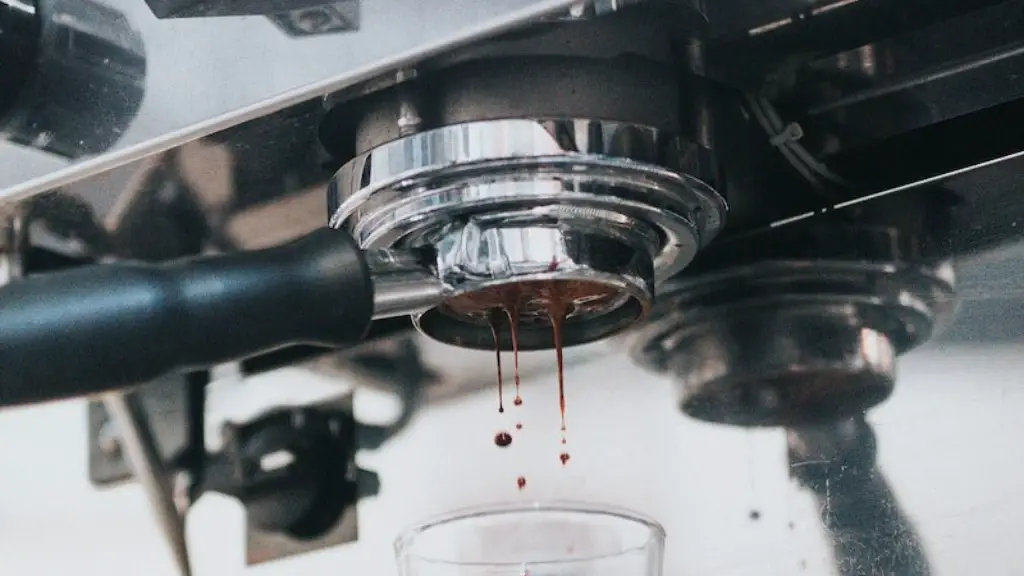Cost of Coffee on Keto
The cost of coffee consumed on a ketogenic diet is often a topic of debate. Many experts advise people following a ketogenic diet to limit their caffeine intake from coffee, suggesting that caffeine can interfere with fat burning, reduces the body’s glucose tolerance and raises blood insulin levels; however, it is important to understand that ingesting caffeine can be beneficial for some individuals following the ketogenic diet.
Coffee can also lead to improved mental clarity and focus, increased energy, improved mood, and increased fat burning. Some studies have even associated coffee consumption with lower risk of certain types of cancer. The key to successful keto coffee consumption is to make sure the coffee consumed is not high in sugar or other carbohydrates, and to avoid drinking too much caffeine.
Amount of Caffeine on Keto
The recommended amount of caffeine intake is typically between 300 and 400 milligrams per day, depending on the individual’s tolerance to caffeine. A standard 8 ounce cup of brewed coffee contains approximately 95 milligrams of caffeine and a 12 ounce cup of espresso contains 146 milligrams, making it much easier to stay within the ideal range of caffeine intake.
It is very important to keep in mind that the amount of caffeine consumed can vary depending on the type of coffee and brewing method. Some types of coffee, such as espresso, are much more concentrated in caffeine than regular drip-brewed coffee, and brewing methods can also influence the amount of caffeine in a cup. In addition, consuming too much caffeine can lead to increased heart rate, increased blood pressure, anxiety, insomnia and other health issues.
Keto-Friendly Alternatives to Coffee
For those who prefer to limit caffeine intake, there are several keto-friendly alternatives to coffee such as matcha tea, green tea, black tea and herbal tea. Matcha tea is a powdered green tea, and it is packed with antioxidants and has numerous health benefits, such as boosting metabolism and helping to regulate blood sugar levels. Green tea and black tea also have numerous health benefits, and they are great options for those who want to reduce the amount of caffeine consumed.
Herbal teas such as chamomile, ginger and peppermint are also great alternatives to coffee, and they can have a calming effect. Coconut water is also a great option, as it is a natural source of electrolytes and helps to hydrate the body. In addition, adding a splash of almond milk, coconut milk or heavy cream can make your keto drink even more enjoyable.
Health Benefits of Coffee on Keto Diet
Coffee can have numerous health benefits when consumed as part of a balanced ketogenic diet. Coffee is an excellent source of antioxidants, which can help to fight against free radical damage and reduce the risk of certain diseases such as cancer. Coffee has also been shown to increase energy and mental alertness, improve mood and memory, and may even reduce the risk of type 2 diabetes in some individuals.
In addition, coffee can help to reduce inflammation, support heart health and may even boost the immune system. For those struggling with weight loss on a ketogenic diet, coffee may also provide an added boost of energy and help to reduce feelings of hunger and fatigue. However, it is important to remember to consume coffee in moderation.
The Bottom Line
Coffee can be beneficial when consumed in moderation, particularly when consumed as part of a well balanced diet. The key to successful coffee consumption on a ketogenic diet is to choose lower carbohydrate blends and avoid adding sugar, dairy or other ingredients that contain carbohydrates. In addition, it is important to limit caffeine intake to prevent any potential side effects. There are many keto-friendly alternatives to coffee if you prefer to limit caffeine intake. Ultimately, the decision of how much coffee to consume while following a keto diet is a personal one, and it is important to understand the potential health benefits and risks of consuming coffee.
Types of Coffee Recommended for Keto Diet
When it comes to choosing coffee for a ketogenic diet, it is important to choose an unsweetened variety that is low in carbohydrates. Common types of unsweetened coffee that are low in carbs include drip coffee, iced coffee, cold brew coffee, espresso and Americano. It is also important to avoid adding sweeteners and creamers that contain carbohydrates to your coffee.
Another option for those looking for a keto-friendly coffee is to use a sugar-free sweetener or a sugar-free creamer to make the coffee. Popular sugar-free sweeteners that are suitable for a ketogenic diet include stevia, monk fruit, erythritol and allulose. Additionally, using heavy cream or coconut cream in place of regular dairy cream can make a delicious cup of keto coffee.
Conclusion
In conclusion, coffee can be a great way to supplement a ketogenic diet—it can provide a boost of energy and improved mental clarity. When choosing coffee for a ketogenic diet, it is important to keep in mind the amount of caffeine consumed, choose a low carbohydrate variety, and avoid adding sugar or other carbohydrates to the coffee. Additionally, there are various keto-friendly alternatives to coffee such as matcha tea, green tea, black tea, herbal tea, and coconut water. Ultimately, the decision of how much coffee to consume on a keto diet is a personal one, and it is important to understand the potential health benefits and risks of the beverage and consume it in moderation.



